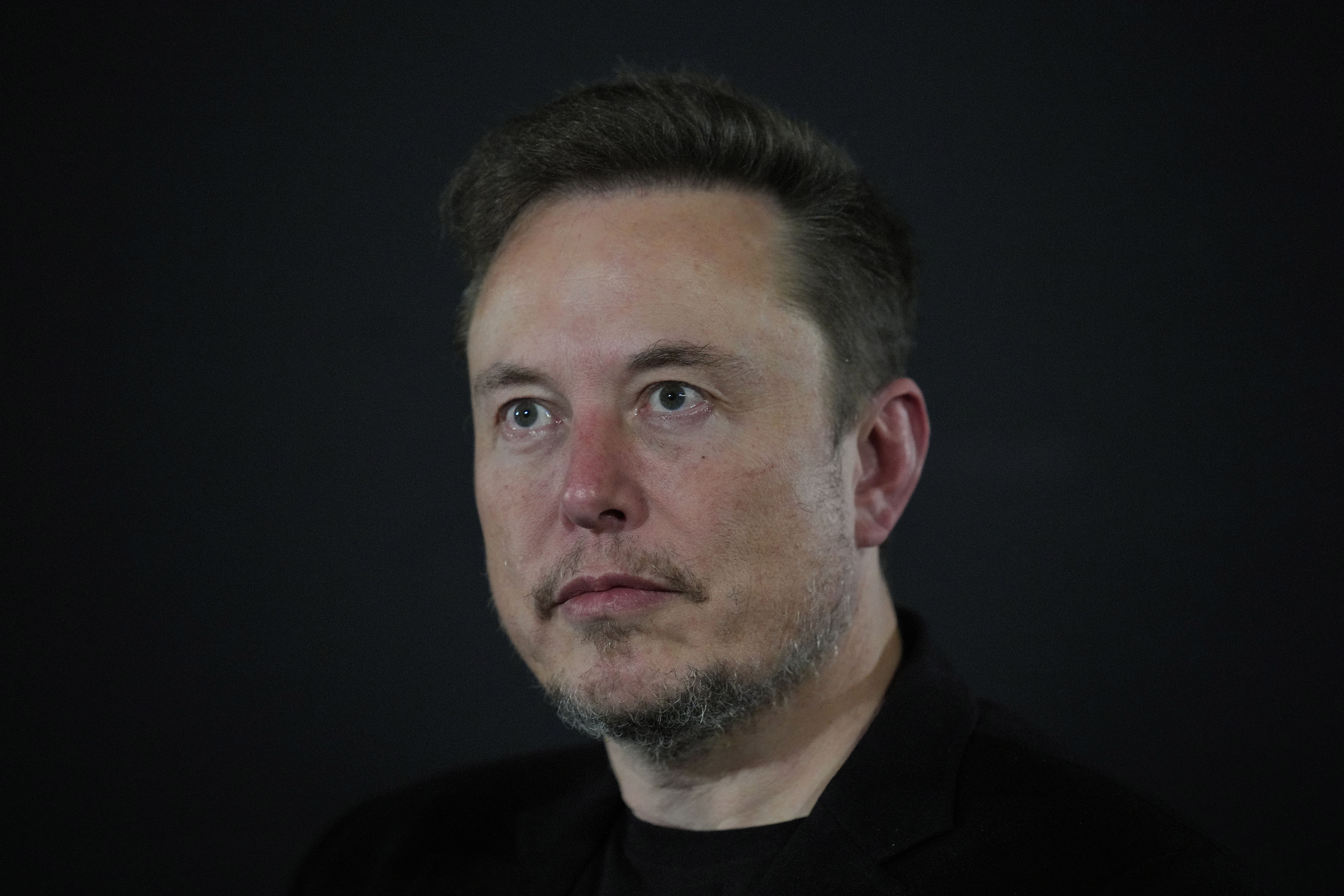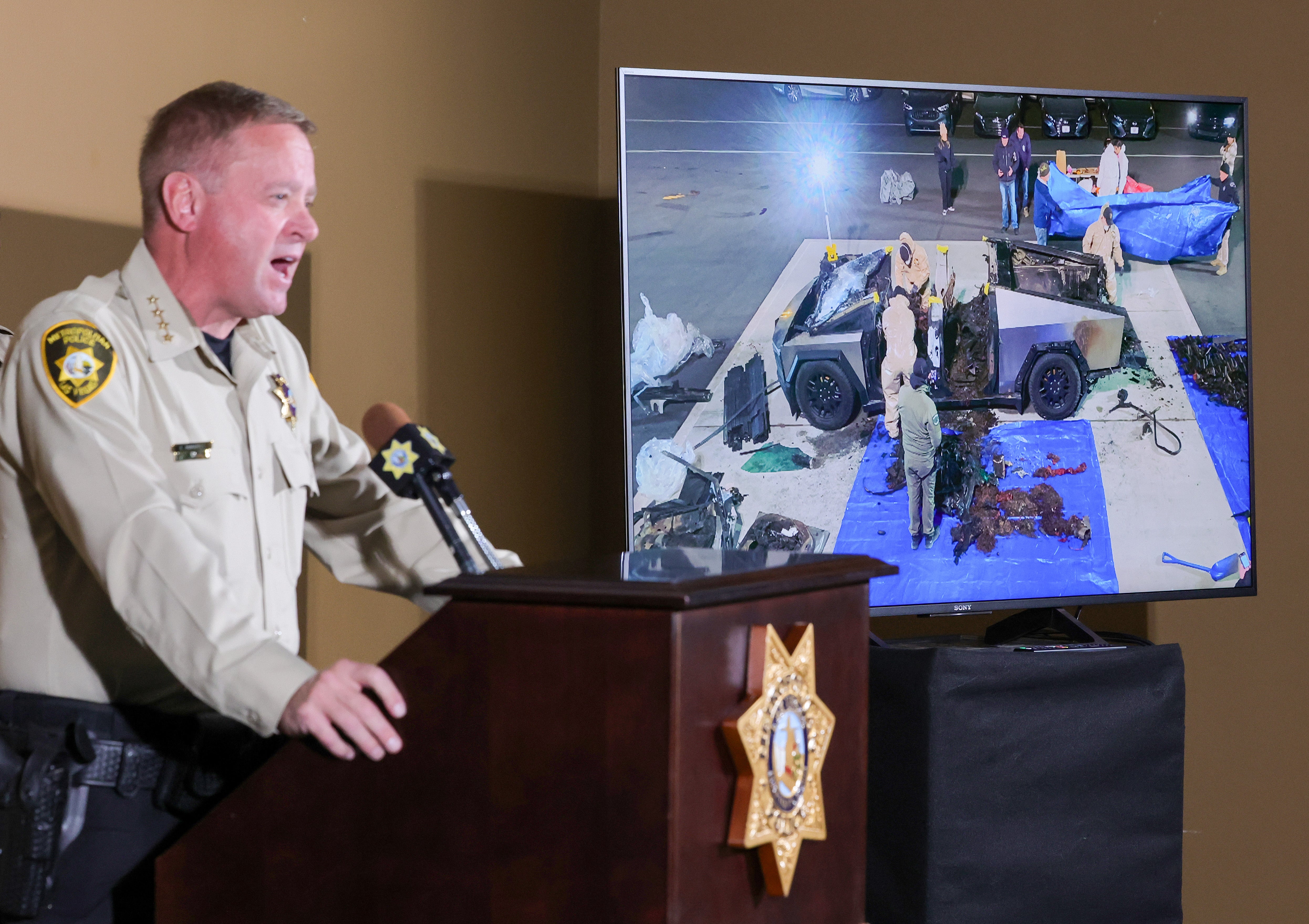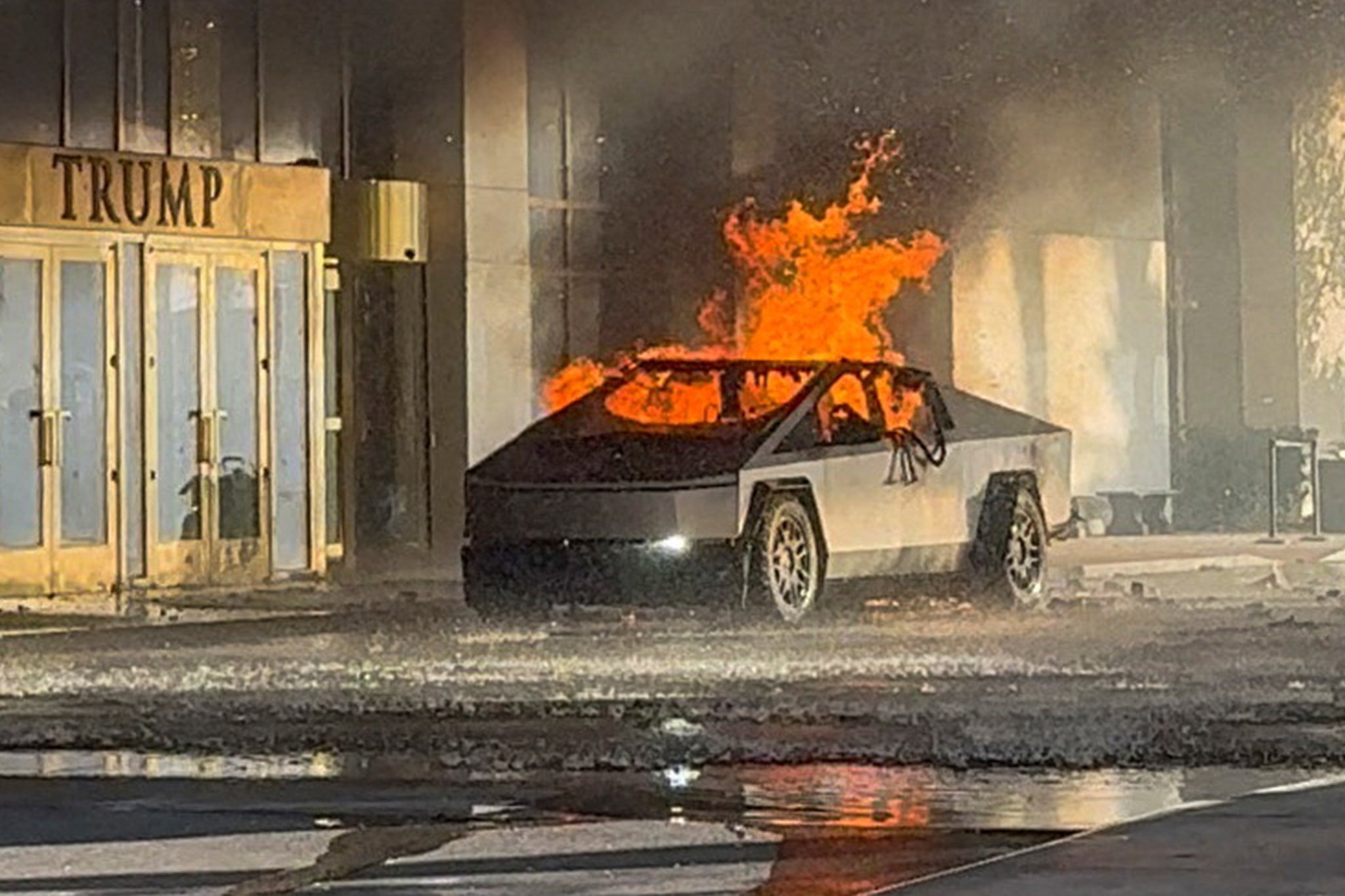Elon Musk questioned over his ‘help’ with Cybertruck explosion case
Tesla boss thanked by Las Vegas police for his support in investigating New Year’s Day blast but intervention provokes questions about his high-tech vehicles’ capacity for data collection
Your support helps us to tell the story
From reproductive rights to climate change to Big Tech, The Independent is on the ground when the story is developing. Whether it's investigating the financials of Elon Musk's pro-Trump PAC or producing our latest documentary, 'The A Word', which shines a light on the American women fighting for reproductive rights, we know how important it is to parse out the facts from the messaging.
At such a critical moment in US history, we need reporters on the ground. Your donation allows us to keep sending journalists to speak to both sides of the story.
The Independent is trusted by Americans across the entire political spectrum. And unlike many other quality news outlets, we choose not to lock Americans out of our reporting and analysis with paywalls. We believe quality journalism should be available to everyone, paid for by those who can afford it.
Your support makes all the difference.Elon Musk was personally praised by Las Vegas Metropolitan Police Department Sheriff Kevin McMahill on Thursday for his help in the aftermath of the deadly explosion outside of a Nevada luxury hotel owned by President-elect Donald Trump on New Year’s Day.
A rented Cybertruck, manufactured by the tech billionaire’s company Tesla, pulled up outside the Trump International Hotel at approximately 8.40am on Wednesday morning, began to smoke and then blew up in a hail of fireworks, with the driver – US Army veteran Matthew Livelsberger – ultimately found dead inside.
Seven more people were injured in the incident and the hotel had to be evacuated, with the drama unfolding just hours after another vehicle ploughed into a crowd in New Orleans, Louisiana, killing 15 people and wounding many more, leading to initial speculation that the two events might be linked.
“I have to thank Elon Musk specifically,” Sheriff McMahill said during his press conference on Thursday.
“He gave us quite a bit of additional information in regards to how the vehicle was locked after it exploded. He sent that directly to us, so I appreciate his help.”
Musk sent a team of mechanics to Las Vegas to help investigators retrieve data and video from the smouldering remains of the truck on Thursday, The Washington Post reports, and was also able to provide footage from Tesla charging stations across the country that helped chart the vehicle’s journey west from Denver, Colorado, to the Nevada resort city.
Musk posted frequently on his social media platform X in the immediate hours after the blast, announcing that his Tesla team were investigating, moving quickly to deny that a technical fault had played a part, threatening lawsuits against media outlets over their reporting, suggesting terrorism had been the driver’s motive and claiming that the robustness of the truck’s design had greatly reduced the extent of the damage and devastation.
“The evil knuckleheads picked the wrong vehicle for a terrorist attack,” he said during his posting on the disaster.

“Cybertruck actually contained the explosion and directed the blast upwards. Not even the glass doors of the lobby were broken.”
Sheriff McMahill agreed with that assessment, telling reporters: “The fact that this was a Cybertruck really limited the damage that occurred inside of the valet [parking area] because it had most of the blast go up through the truck and out.”
However, the law enforcement officer’s disclosures about the extent of Musk’s support only provoked further questions from the public on Reddit, with users posing questions in response to his comments via a CuratedTumblr thread entitled “Asking some reasonable questions about Elon Musk’s ‘help’ with the Cybertruck bombing case.”

The sheriff’s revelation that the Cybertruck had been locked at the time of the explosion prompted one person to ask: “How come the truck automatically locks when it blocks and bursts into flames [?]”
“How come Elon Musk has access to security footage of your charging your car [?]” asked another.
The investigation into precisely what happened on Wednesday is still ongoing and more details are likely to be disclosed as it proceeds.

But the answer to the second question is that modern vehicles carry ever-more sophisticated on-board technology, with Tesla’s in particular featuring a wealth of sensors, cameras and mobile transmitters that gather real-time diagnostic information and even driving footage to provide live updates on the health of the car in the greater interests of safety.
“All vehicle telemetry was positive at the time of the explosion,” Musk reported in one of his X posts, meaning that his team had been able to determine that the Cybertruck in question was not experiencing a fault at the time of ignition, meaning the catalyst for the disaster lay elsewhere.
Tesla’s privacy policy declares that it collects readings from its vehicles in order to improve its products but adds that encrypted data can be accessed by its team to investigate “safety events” like Wednesday’s explosion – or to comply with “law enforcement and other government requests”.
The extent of Tesla’s ability to collect data from drivers – even if it enables the company to aid the police, as in the present case – has been the subject of criticism on privacy grounds in recent years, with Professor Matthew Wansley of the Cardozo School of Law telling the Post this week: “On the one hand, every business wants to have a good relationship with local law enforcement.
“But on the other hand, you don’t want consumers to think that you’re just going to be sharing their data without a subpoena.”

Join our commenting forum
Join thought-provoking conversations, follow other Independent readers and see their replies
Comments